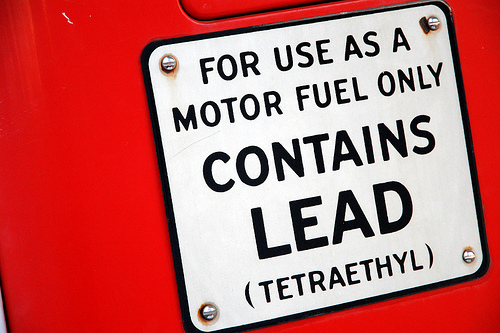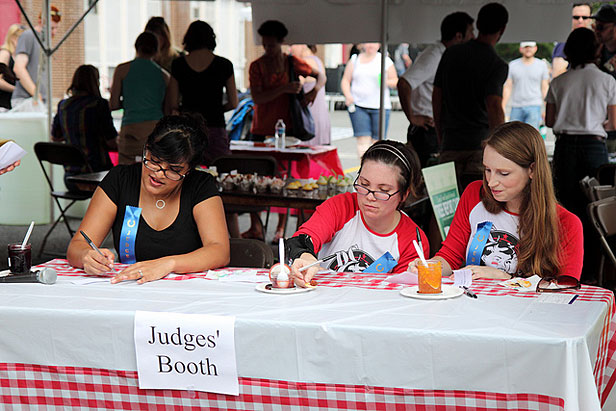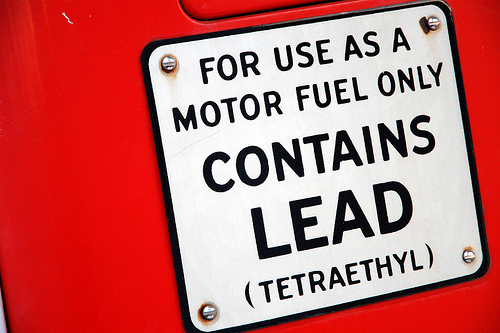Send your question to Umbra!
Q. Dear Umbra,
Regarding the urban gardening that is blossoming out in cities around the country, I wonder how safe the soil is for growing food. It would seem that it would be severely polluted from decades of applied chemicals, the casual dumping of anything and everything associated with urban households, and even the fallout from local industry. Is there any attempt to determine the safety of the foods derived from such sources?
Best regards,
John Bader
 Take me to your lead, er?…Photo: Steve SnodgrassA. Dearest John,
Take me to your lead, er?…Photo: Steve SnodgrassA. Dearest John,
Mary, Mary would have been quite contrary if lead or other toxins had made her garden grow. And so should we all be, John. Food grown in soil with lead and other toxic heavy metals is definitely something to be avoided. But it’s not just urban farms whose soil might be soiled.
“You can’t assume what you buy at the grocery store is any safer,” Edie Stone told The New York Times. Stone is the executive director of GreenThumb, a division of the New York City Parks and Recreation Department that supports urban gardening.
Better living through chemistry has sent a lot of new chemicals into our water supply and soil. Lead is just one example. From paints to leaded gasoline — introduced in the 1920’s to boost octane levels and completely banned in 1996 — lead has had a strong polluting presence for more than 100 years. Soil near highways is often lead laden. Acid rain leaches the lead from house paint and into soil.
Getting the lead out — of everything — is crucial. Lead remains one of the top environmental hazards to children and babies, causing brain and nerve damage, according to the EPA. And it isn’t good for grownups either. Lead can lead to high blood pressure, hypertension, nerve disorders, concentration and memory problems, and muscle and joint pain in adults.
The good news is that even if lead or other toxins are present in soil, it doesn’t mean you have to give up the idea of growing food or eating urban- or suburban-grown produce. Soil, from suburbs to cities and beyond, just needs to be managed properly. With smart soil management, no one need turn into a Mad Hatter from eating backyard melons. The phrase is “Eat Local” not “Eat Loco,” after all.
If you are eager to replace that concrete with a garden, like the characters in the comic strip My Intentional Life, be sure you test your soil first, especially if you’re planning to grow edibles. It costs less than $30 to have your soil tested for toxic metals. Brooklyn College’s Environmental Analytics Center and the University of Massachusetts Soil Testing Lab test soil samples from across the country.
Once you know the results, managing your soil is the key to safe growing. “That’s why most community gardens are on raised beds,” says Karen Washington, an urban farmer, activist and president of the NYC Community Garden Coalition. “We’re not on the ground. The soil [in the beds] is 10 inches deep. We had our soil tested last year and it is fine within the beds.”
You can also help rehabilitate toxic soil by growing crops such as sunflowers or spinach. Both help remove lead and other toxic metals. “But do they absorb enough?” asks Karen Washington. “Some people say they help, some people say what they do isn’t sufficient. So you’re gonna have the debate on both ends. The bottom line is that you need to have your soil tested regardless.”
Until your soil tests clean, make sure you dispose of your “soil helpers” rather than consuming them. That’s better than a lead salad. And don’t forget to dispose of them as hazardous waste.
Another way to amend bad soil is to use compost. “It’s always good for people to put compost in their soil because it will bind up the lead and make it unavailable to the roots of plants,” said Lenny Librizzi, assistant director of the Open Space Green Program GrowNYC.
If you’re more of an eater than a grower, John, you’ll be glad to know that urban farmers are accountable for the safety of their soil and food. “We have to supply the New York Department of Agriculture and Markets with a crop plan, including what we’re going to grow,” says Ms. Washington. “Inspectors come by to inspect your market.”
If you’re still concerned about the soil where local food is grown, just ask the farmer. The beauty of local agriculture is that you get to know and trust your neighborhood farmers and their products.
Dirtily,
Umbra
Get Off Your Ass Alert: If you’d like to dive deeper into the wonder that is soil, check out Dirt! The Movie. It’s a glorious ode to the “living skin of the Earth” we so often taken for granted. You’ll feel inspired and may want to plant something in soil as soon as you see the film. I planted a window garden immediately after viewing. Another viewer went home and tasted a handful of dirt. Enjoy the dirt candy!



